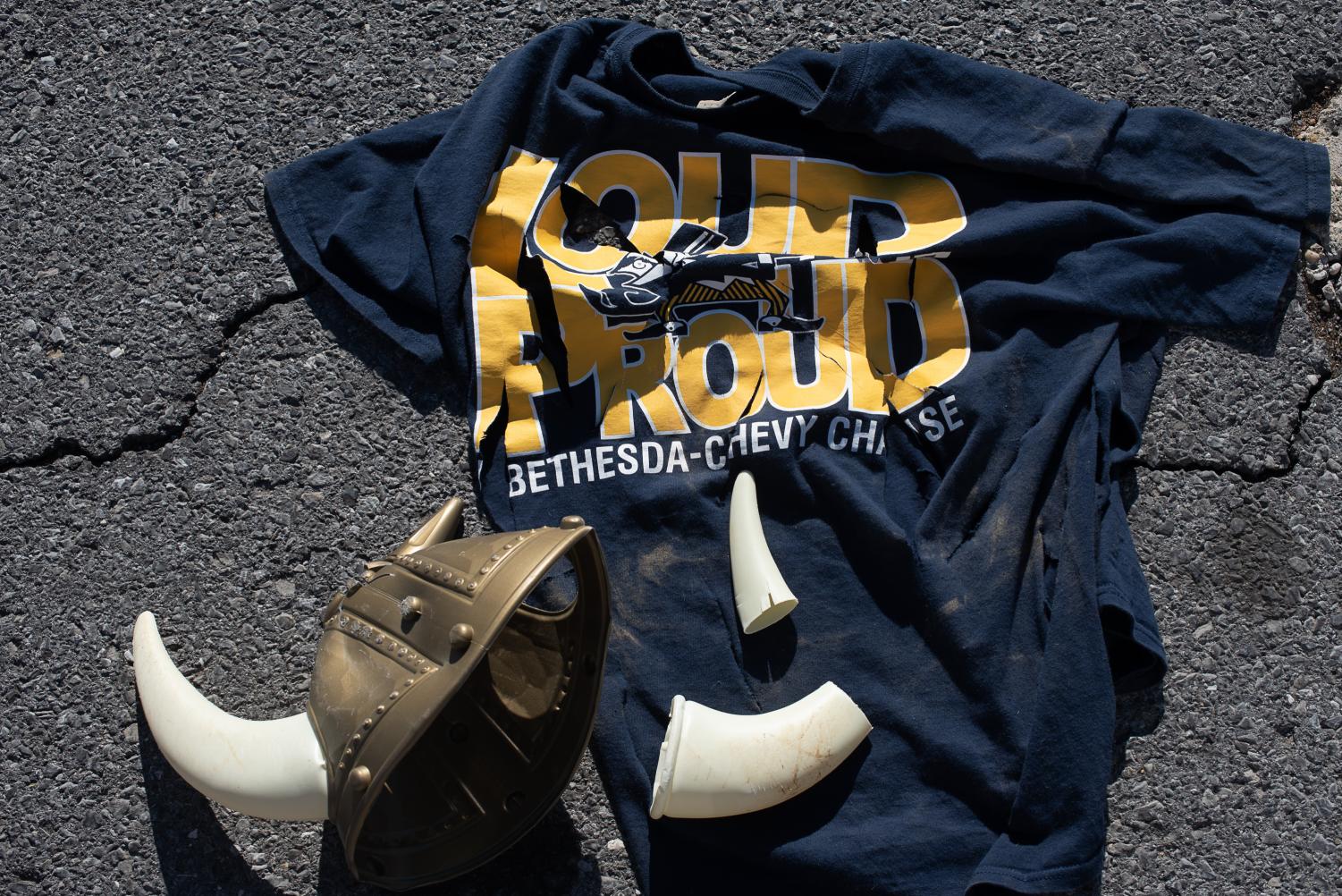Some names have been changed for anonymity.
After the Friday-night, varsity football game at Bethesda Chevy Chase High School Oct. 11, senior Drew and his friends flocked to the nearby Chipotle — but not to grab a burrito.
It’s become an unspoken rule that after the end of tense sporting events between B–CC and Whitman, students from both schools meet up at Chipotle to fist-fight. On that Friday at around 9:00 p.m., the ritual was no different. Whitman’s school district borders BCC’s, creating a hub of confrontation and violence. School administrators and students alike struggle with containing and coping with the aggression that inevitably occurs at every student sporting event.
After the game, a mob of students sprinted out of B–CC’s Guckeyson field to the restaurant. When Drew and his friends arrived at the Chipotle, about 200 B–CC students were already waiting to charge at them.
Several B–CC students shoved Drew into a wall. He managed to struggle free, but not before a B–CC student punched him in the eye. Drew sprinted away from the angry mob, but students continued to follow him, attempting to hurt him. Drew ducked and threw a punch at one of the more confrontational aggressors, but the mob tackled Drew to the ground and continued to hit him. When the tension lowered and the mob dispersed, Drew and his friends left battered, bringing home a black eye and crooked nose.
“I know that it’s not smart to fight, and it would’ve been better to stay away,” Drew said. “But I also knew before the game that I wouldn’t be going straight home when it ended.”
A similar event occurred at the same Chipotle after a basketball game between the two schools in 2017. Last year, Whitman security guards fended off dozens of students trying to attack each other in the Whitman bus line after another basketball game; the same thing happened outside of B–CC just weeks after.
Students also erupted in violence after a 2019 club hockey game at Rockville Ice Arena. Police officers showed up to break up the fight, and a foreign exchange student who was staying with a Whitman family left with a bloody gash above his left eyebrow.
“I was at the fight at the hockey game last year, but I’m still friends with a lot of Whitman students,” B–CC junior Axel Lele said. “The rivalry is more of a forced hatred towards each other because of our past than genuine hatred; in reality, the people like each other just fine.”
Security team leader Cherise Milliner, who has been a security guard at Whitman for 21 years, said the rivalry between the two schools has become more hostile in recent years.
To adapt to the aggressive climate, the security team takes advantage of the widespread use of social media, monitoring apps like Instagram and Snapchat to spot and prepare for pre-planned violent acts from students.
This year, they’ve also taken extra precautions: students aren’t allowed to attend Whitman hockey games without an adult 21 or older. Additionally, B–CC and Whitman have moved games to earlier times from their usual 7:00 p.m. starts to try to curb student aggression, which in the past has been more prevalent late at night, Milliner said.
“I don’t remember the rivalry heating up to the point of students fighting in my earlier years at Whitman,” Milliner said. “We position security guards in the parking lots after games because we anticipate the violence now.”
Milliner has physically intervened in several altercations between B–CC and Whitman students at both schools. Security guards tend to focus on the students from their own school because they think their own students will be more receptive, she said.
“We’ve had to push our students away from the conflict to a separate area and demand them to leave,” Milliner said. “We can’t keep them in close proximity to B–CC students. The area is too high pressure, and students from both schools are susceptible to acting out.”
When things get out of hand and security intervenes, the guards hand students off to the administrators present at the games. Administrators then determine whether the students will receive disciplinary action and what their punishments will be based on the severity of the situation.
Although administrators declined to comment, the MCPS website cites a range of possible consequences for violence on school property, from a parent conference and police referral to an in-school intervention, suspension or recommendation of expulsion.
In response to frustration from the Maryland Scholastic Hockey League Executive Board — a group of 17 adults that make decisions about league regulations — and Rockville Ice Rink after violence at the hockey game last year, both schools’ hockey clubs agreed to ban underage fans from attending their game Nov. 11 unless an adult over the age of 21 accompanies them.
Even though the growing intensity of the rivalry is evident through the fans’ interactions, it doesn’t affect many of the players on the field, Whitman wide receiver Spencer Jones said.
“Playing B–CC is exciting because the fans are so energetic and it’s such an important game for us, but that’s even more of a reason to stay focused on the game,” Jones said. “It’s frustrating when there’s more attention on the arguments in the stands than there is on the field.”
But for other players, like Whitman basketball guard Josh Weinberg, the name on the opponent’s jersey is much more meaningful. Since B–CC and Whitman are in such close proximity to each other, Weinberg has played basketball outside of school with many of the students on B–CC’s team. Winning a B–CC game means all Whitman students will have “bragging rights” over their friends from B–CC, which adds another level of intensity, he said.
“The role of the fans is especially highlighted in basketball because the fans are so close to the court,” Weinberg said. “B–CC’s student section always comes into our games having researched specific nicknames to yell at our players. It makes it harder to focus, but it’s the type of energetic game that every high school basketball player dreams of playing in.”
The growing violence has impacted the game environment for the student body. For students like Drew, the games between the two schools are now centered around the fights that follow and not the actual sport. It doesn’t matter who wins and who loses, students end up fighting regardless, Drew said.
Junior Althea Dulany left the basketball game at B–CC last year with a group of friends to walk to a parent’s car. When a group of angry students ran out of the school’s exit and down the sidewalk on the way to the bus lane to fight, Dulany didn’t have time to move out of the way. A student shoved her to the ground; she didn’t even know whether the student was from Whitman or B–CC, she said. In the fall, Dulany cut her knee, leaving a scar that she still has today. Dulany understands why people would expect her to hate B–CC because of the incident, but it just made her realize that the rivalry is out of control, she said.
As for Drew, his black eye has healed and his nose has returned back to its normal shape but views the feud in a new light than before the episode occurred.
“We’ve reached a climax for the violence,” he said. “Hopefully, younger students will realize that the rivalry can still be exciting without the violence, It’s just not worth injuring other students because of a sports game.”



